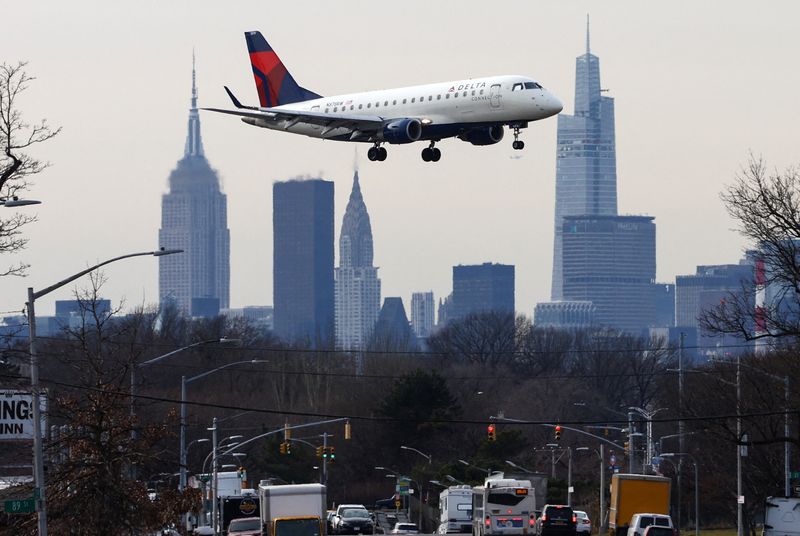By Kylie Madry
MEXICO CITY (Reuters) -The U.S. government said on Friday it did not plan to renew the antitrust immunity that Delta Air Lines (NYSE:DAL) and Aeromexico currently operate a codeshare agreement under, after the Mexican government made sweeping changes at the country's main capital airport.
Last year, Mexican officials moved cargo flights from Mexico City International Airport (AICM), the country's busiest airport, to a newer airport ordered built by the president on the outskirts of town.
Later, slot availabilities for commercial flights were slashed in another bid to reduce saturation at AICM.
The actions are to the detriment of existing carriers and potential new entrants, according to the U.S. Department of Transportation (DOT), which has long been unhappy with slot allocations at the airport.
The decision is pending a final ruling, the department said, adding that the companies tentatively have until Oct. 26 to wind down their joint venture.
The immunity agreement allows the airlines to sell seats on each other's flights under a codeshare arrangement. Delta and Aeromexico were set to offer more than 90 daily flights between the countries this year under the arrangement, Delta said in October.
Delta said it was reviewing the DOT's decision. Aeromexico did not immediately respond to a request for comment.
U.S. authorities, carriers and lobbies have opposed the actions taken by the Mexican government, which President Andres Manuel Lopez Obrador has acknowledged are aimed at boosting low traffic at the new Felipe Angeles International Airport.
The decision to move cargo flights also threw a wrench into Allegiant and Viva Aerobus' plan to launch a joint venture last year.
Mexico had said renovations were needed to take place at the decades-old AICM, but the DOT said it was informed no additional capacity would be added for now.

The DOT said U.S. officials had spoken with high-ranking Mexican counterparts over the decisions, which the DOT called "fundamentally out of compliance with the existing bilateral air service agreement and international norms."
Mexico's transportation ministry did not immediately respond to a request for comment.